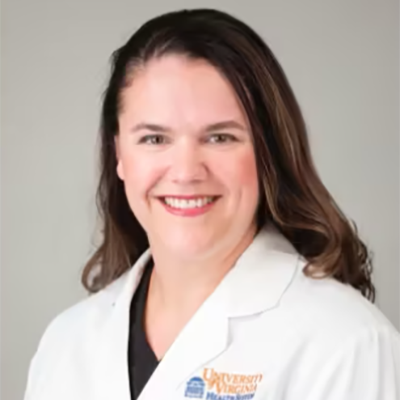
Cate Varney, DO, FAAFP
Assistant Professor, Department of Family Medicine
In this edition of Grand Rounds in Hematology and Oncology from November 2023, Patrick M. Dillon, MD, University of Virginia Hematology & Oncology, Charlottesville, Virginia, introduces Cate Varney, DO, FAAFP, Assistant Professor, Department of Family Medicine, UVA Health, Charlottesville, Virginia. In this 70-minute presentation, Dr. Varney presents a compelling case for integrating obesity treatment into cancer survivorship care, highlighting that while obesity increases cancer risk, it also influences treatment response, recurrence, and overall survival. She notes that despite its well-established role in cancer outcomes, obesity is often underdiagnosed and undertreated in oncology settings. The talk includes a short Q&A discussion at the end.
Dr. Varney outlines the evolving landscape of obesity treatment, emphasizing the emergence of highly effective anti-obesity medications such as GLP-1 and GIP/GLP-1 receptor agonists and lifestyle and surgical interventions. Data suggest these therapies not only improve weight but may also enhance cancer treatment outcomes. However, the lack of systematic implementation in oncology remains a major gap.
Dr. Varney stresses moving from referral-based models to embedded, team-based care. She describes the establishment of a dedicated obesity and cancer clinic that provides comprehensive metabolic evaluation, behavior change support, and evidence-based pharmacologic and surgical therapies. The clinic also tracks longitudinal outcomes to assess how weight management affects cancer recurrence and survival. This integrated approach is designed to overcome barriers to obesity care in oncology, including limited provider training, time constraints, and insurance challenges.
Dr. Varney urges oncologists to treat obesity as a chronic disease within the scope of cancer survivorship. She advocates for institutional support to implement multidisciplinary models that align metabolic health with oncologic outcomes, ultimately aiming to reduce recurrence risk and improve the quality of life for cancer survivors.
